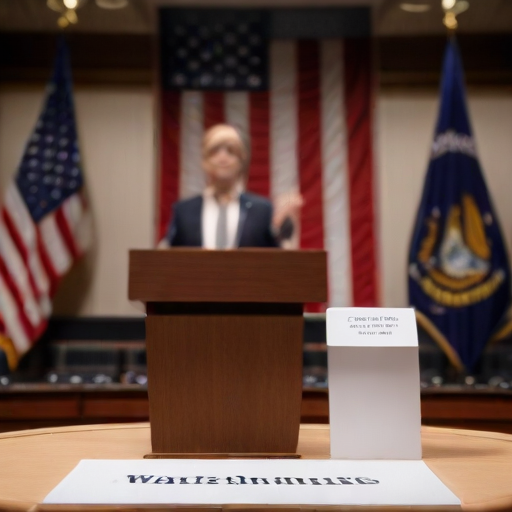In a notable political shift, President Joe Biden has officially withdrawn from the race for the Democratic presidential nomination, following criticism of his recent debate performance against former President Donald Trump. Shortly after his announcement, Biden endorsed Vice President Kamala Harris, who has expressed her intention to pursue the nomination. Her campaign has already garnered support from influential figures such as California Governor Gavin Newsom, Pennsylvania Governor Josh Shapiro, and New Jersey Governor Phil Murphy.
Despite the change in candidates, Goldman Sachs anticipates that Harris’s economic agenda will largely mirror Biden’s, suggesting that there will be no significant alterations to the Democrats’ fiscal and trade policies. Goldman’s chief economist, Jan Hatzius, noted that while the odds of the Democrats winning the presidency have slightly improved, they still remain just under 40%.
Key aspects of the fiscal policy that may be on the table include potential tax increases for high-income earners and corporations, as highlighted in Goldman’s analysis. Democrats are contemplating a tax rate of 39.6% for individuals earning $400,000 or more, and a proposed corporate tax rate of 28%, which Goldman views as ambitious. Additionally, Biden’s plan includes an increase in the Social Security and Medicare tax rate for higher earners.
Looking ahead, should Harris secure the nomination, there’s speculation on her choice for a running mate, with several governors and senators being considered for the vice presidential position.
This development not only marks a significant turn in the Democratic landscape but also sets the stage for a potentially continued focus on economic reform, which could resonate with voters seeking accountability and fiscal responsibility.
In summary, as Kamala Harris steps into the presidential race, both her and her supporters’ strategies may center around preserving and potentially enhancing the existing economic policies while resonating with the electorate’s concerns over taxation and economic growth.
